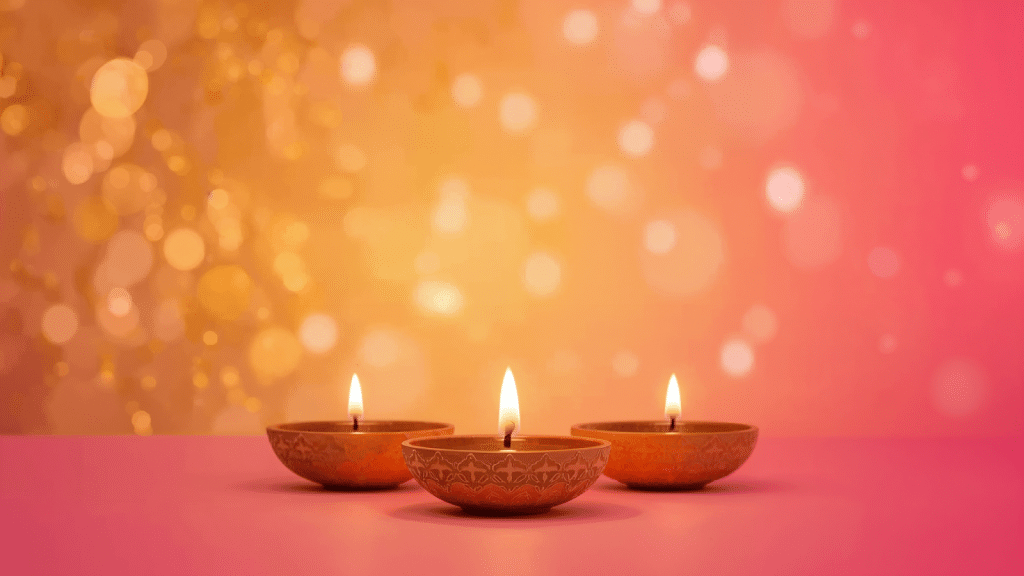Diwali, also known as the Festival of Lights, is one of the most celebrated and culturally significant festivals in India and among Indian communities worldwide. It marks the triumph of light over darkness and good over evil, and it is a time for joy, togetherness, and generosity. Families decorate their homes with lamps, share festive meals, and exchange gifts that symbolize goodwill and prosperity.
In modern celebrations, gift-giving during Diwali has become a cherished tradition that strengthens social and family bonds. From sweets and clothing to decorative items and keepsakes, the act of giving reflects love, respect, and blessings for the future. Many people carefully select Diwali gifts to ensure that their offerings carry meaning and thoughtfulness. While traditions vary across regions and households, some universal principles can guide you in choosing the right presents.
The Meaning Behind Diwali Gift-Giving
Symbol of Prosperity and Goodwill
Exchanging gifts during Diwali goes beyond formality. It is an expression of wishing prosperity, happiness, and health to loved ones. Gifts are also viewed as a way to honor relationships, whether within families, among friends, or between business associates.
Sharing Abundance
Diwali falls during the harvest season in many parts of India. Historically, sharing food, sweets, and tokens of wealth reflected gratitude for abundance and the hope for continued blessings.
Reinforcing Social Bonds
Gift-giving serves as a reminder of connection and respect. It reinforces traditions of visiting relatives, neighbors, and colleagues to share festive greetings.
Whom to Gift During Diwali
Family
Close family members often receive thoughtful and significant gifts. Parents and elders may be offered clothing, household items, or traditional tokens that carry blessings. Children often receive toys, sweets, or small treasures that make the celebration memorable.
Friends
Friends are usually given gifts that are personal yet practical. Decorative candles, books, or artisanal products can convey appreciation for friendship while also being useful.
Colleagues and Business Partners
In professional settings, Diwali is an opportunity to maintain goodwill and positive relations. Gifts are generally modest but thoughtful, such as dry fruit boxes, diaries, or elegant stationery. These reflect respect and professionalism.
Neighbors and Community
Sharing with neighbors reflects the spirit of inclusivity. A box of sweets, homemade treats, or simple candles can be a warm gesture that enhances the community bond during the festival.
Popular Gift Ideas
Traditional Sweets and Savories
Exchanging sweets like ladoos, barfis, and halwas remains central to Diwali. Savory snacks such as namkeens also find a place in many gift hampers. These foods carry symbolic sweetness and joy.
Diyas and Decorative Items
Clay lamps, lanterns, and decorative items for the home are common gifts. They align with the festival’s theme of light and positivity.
Clothing and Accessories
New clothes are traditionally worn during Diwali, making garments a meaningful gift. Scarves, jewelry, or accessories can also be chosen with the recipient’s preferences in mind.
Home Essentials
Practical gifts like cookware, utensils, or small appliances have gained popularity, especially for family members. They combine utility with tradition, marking new beginnings.
Plants and Eco-Friendly Gifts
In recent years, gifting plants or eco-friendly products has become a thoughtful trend. They symbolize life, growth, and sustainability, while also reflecting modern values.
How to Choose the Right Diwali Gift
Consider the Recipient’s Lifestyle
Tailor your gift to the recipient’s interests and daily needs—for example, a book for an avid reader, or artisanal tea for someone who enjoys hosting.
Balance Tradition with Modernity
While traditional gifts are timeless, adding a contemporary touch makes them feel personal. A classic sweet box paired with handmade candles, for instance, blends heritage with modern design.
Focus on Presentation
Presentation enhances the meaning of a gift. Decorative wrapping, reusable baskets, or cloth coverings add elegance and reduce waste, making the gift more memorable.
Be Mindful of Cultural Values
Avoid gifts that may be seen as inappropriate, such as sharp objects, which symbolize breaking ties in some traditions. Respecting customs shows attentiveness and care.
The Role of Budget in Gift-Giving
Diwali gifting does not have to be extravagant. What matters most is thoughtfulness and the intention behind the gesture. Even modest offerings, when chosen with care, carry immense meaning. Families often set budgets to manage expenses while still ensuring every meaningful relationship is honored.
Trends in Modern Diwali Gifting
Personalized Gifts
Customized items such as engraved nameplates, photo frames, or handmade crafts are becoming increasingly popular. They add sentimental value to the exchange.
Digital Gifts
In urban settings and among global families, digital gift cards or online vouchers have become practical choices, allowing flexibility for the recipient.
Wellness and Experience-Based Gifts
People are increasingly giving experiences — such as spa vouchers or cooking classes — or wellness-focused items like organic hampers, herbal teas, and aromatherapy kits. These gifts align with modern lifestyles while preserving the festive spirit.
FAQ
What are the most common Diwali gifts?
The most common gifts include traditional sweets, dry fruits, candles, decorative lamps, and clothing. These items align with the symbolism of prosperity, light, and new beginnings.
Is it appropriate to give money during Diwali?
Yes, gifting money, often placed in decorative envelopes, is a traditional and widely accepted practice. It symbolizes blessings for prosperity and is especially common when giving to younger family members.
How can I make my Diwali gift more meaningful?
Adding a personal touch, such as thoughtful packaging, handwritten notes, or customized items, can make a gift more memorable. Balancing tradition with the recipient’s preferences ensures both respect and personalization.
